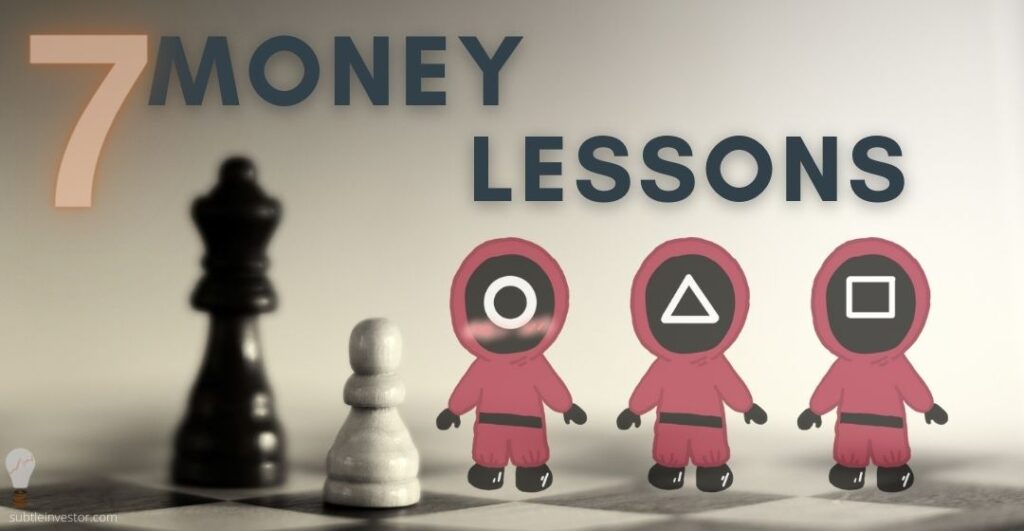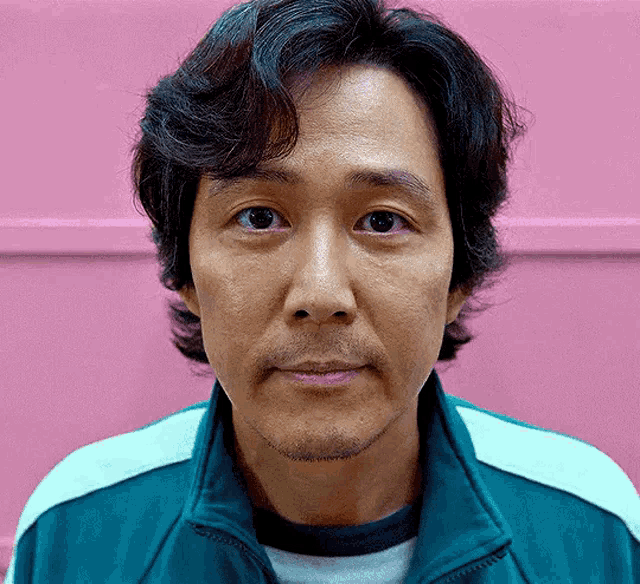7 money lessons from the Squid Game
Squid Game – heard of it? watched it? loved it? Let’s get into 7 money lessons that we can all learn from this South Korean Netflix show.
1. Diminishing marginal utility of wealth
If you studied bit of economics, you’d know exactly what I am talking about. This economic law of is one of the first principles we learn in Microeconomics.
In layman’s terms “more money may not make you more happy”. It’s all about how much utility or happiness you get as your total wealth or income starts to increase.
Look at this graph here, seeing a £20K jump in your income from £60K to £80K is likely to give you more utility than jumping from £200K to £220K.
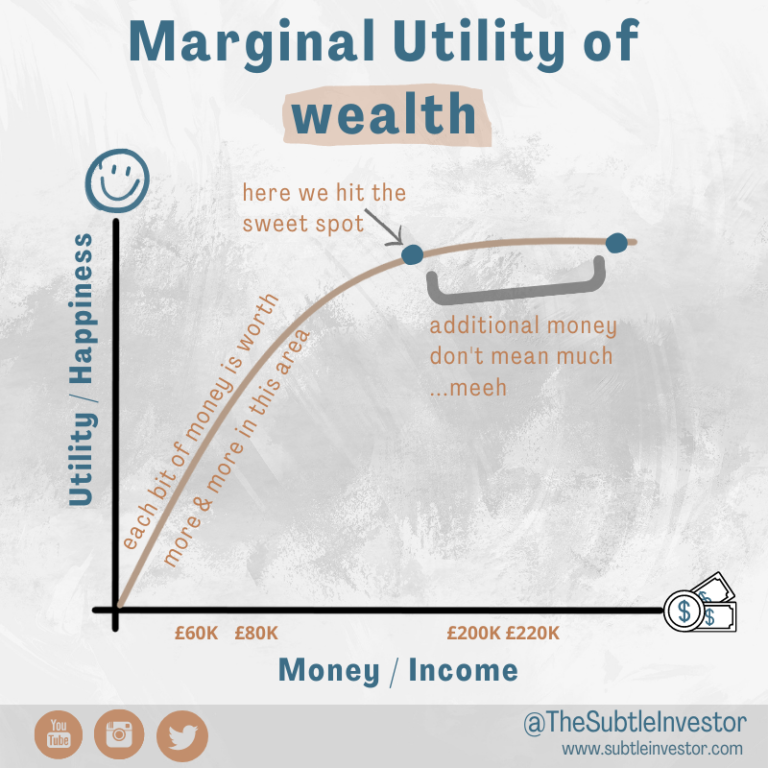
The more you have, the ultimate utility you get from it slowly starts to diminish. It’s also true for food too. After having 10 bites of a cake, the 11th bite will not taste as good as the first bite. You know what I’m saying?
This concept is the fundamental reason behind why the Squid Game started in the first place. A filthy rich guy with his filthy rich friends, were so bored that no amount of money was enough to keep them entertained. And so, they needed to do something to keep them on edge – if you’ve watched, you know what I mean. Don’t want to spill any spoilers.
2. Risk management is everything
Richer people have richer money problems. What we saw from this show is that even rich and genius people can still mess up. Think of Sang-Woo’s character. He was the ultimate pride of his family, friends, and neighbours. After graduating from Seoul National University, Sang-woo became an investment team leader at a securities team (basically making a lot of money from investing!).
He got into debt because he became greedy and took money from his client’s account to invest in risky derivatives. In other words, he invested in leveraged products. He thought, he could make a quick profit and put the original money back in his client’s account before anyone finds out. But the market went against him, and rather than making money, he lost it all plus some more. Since, he could not return the money and it all came to light – the authorities were after him for fraud.

Learning from this character is simple: don’t be greedy. And if you lack in ethics don’t manage other people’s money. And when it comes to your own investments learn to better risk manage!
3. Debt leads to desperation
One thing that was utmost clear from the Squid Game is that debt bought all these people together. The game had people from all walks of lives, different age, gender, social and educational background. And regardless of how much debt they all had, every single person was desperate to win some money to ease their financial situation. One thing it highlights is that we should not be quick judge anyone. While £10k may be a lot of money for one person to risk everything they’ve got, for another it may worth nothing – yet in the end the impact could be the same for both these people.
The impact of debt in mental health is something I deeply care about. I have a post on how debt tends to spiral out of control and how you can get help. Feel free to check it out if you like.
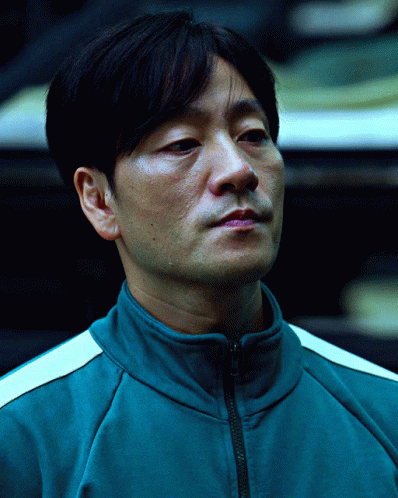
What we saw from the game is that some of characters were here because they needed the money for their family. The main character, Seong Gi-Hun joined the game to pay for his mother’s operation while she was sick. In the end, and here comes a *spoiler alert*, his mother dies when he returns back with the cash. We see that she died alone, lying on the floor. He could not even be there for her. And suddenly the ‘value’ or ‘utility’ of these billions of S.K won dropped to zero. And he was again miserable. This time after losing one of the most important people in his life. It showed that, if only he did not go back to the game in hopes of winning all these money and found a more sensible way of making money, his mother may have still be there.
It ultimately showed us that money doesn’t buy happiness and sometimes we need to rethink of our priorities – is it really the money that should take the prime focus or the person?
5. Never stop trying
Keeping with Seong Gi-hun, in the very first episode we learnt that he had been fired and out of job for some time. And so, he still lived with his mother, relying on her income. His wife also left him with their little daughter and married someone who is better established. At the start of the series, he was portrayed as someone who did not have a single serious bone in him and had lost all his motivations to get back up when his factory had to close. He did not retrain for another job and was not serious about getting back on track.
Rather than focusing on career development and applying for jobs, he would often take money from his mother & borrow from others so that he could gamble. Even though, he is a really nice guy wanting the best for his family – there was something lacking in him. However, that lack of drive changed quite drastically during the games.

So, one thing for sure is that it is ultimately in our own self interest that we learn to stay motivated and don’t take our comfort for granted. As long as we keep on learning new things, there will be plenty of opportunity for us to take.
6. If it’s too good to be true, it probably is
Short cuts don’t work. If an opportunity looks too good to be, it probably is. What typically happens is that, from time to time we may come across or be presented with an opportunity where the odds of winning is very high. But it’s crucial that we don’t get sucked into it. At the start of the series, we saw that Seong Gi-hun was approached by a well-presented man with a lot of cash in his briefcase. The guy asked Seong Gi-hun to play a very simple game with him. In the game, every time he wins a round, he will get some cash, but will only get a slap if he loses. Since the money meant so much to him, he was willing to let his cheeks take the pain.

After a couple of painful slaps, he wins the round and gets some money. And we soon find out that the game was a bait to lure him into playing a much bigger game for a lot more cash. More than he could ever imagine. Since his first win came with a limited downside, it meant he was more likely to say ‘yes’ for the big game (without completely knowing what it involves) – and so he does. He agrees to participate. Only, after the game starts, we all find out what was on stake.
It teaches us, how at times easy wins can lead to much bigger future losses. You can draw parallel between this and a lot of ‘too good to be true’ business opportunities. Whether it’s that investment guru promising you a 50% return on your money or a pyramid scheme where you are guaranteed to become a millionaire within a year – avoid! I would even go one step further and say the same about some of the ‘meme’ stocks and cryptocurrencies. Watching others win may be tempting but if you put a lot of money in them, the stakes could be higher than you think!
7. Save, search & spread (?)!
Finally, lets end with appreciating number 7 which is based on the most loved characters. And his name was Ali. A gullible migrant from Pakistan. He joined the Game after not getting paid from his work. I’m sure we can all appreciate just how much that salary meant to him and his family. He was in such a desperate situation that he did not even have enough cash for a bus ride. While he was in a troubled financial situation for something illegal that his employer did, a similar situation can happen with any of us, although maybe via a different route. For example, getting laid off from work or if the whole company becomes “a going concern.” Nothing can be guaranteed.
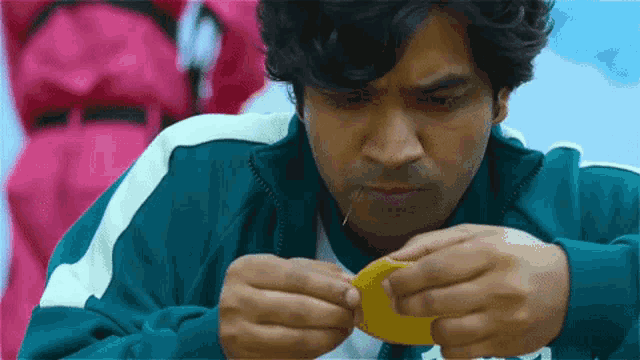
Ali’s life teaches us three things: first, diversify your income if possible (such as through a side hustle or passive sources such as dividends). Secondly, have at least 3-6 months of emergency savings for times of need, so you don’t have to resort to doing anything desperate. And finally work for a better employer!
Before starting a job, doesn’t matter how good the salary is – find out about the company culture and their values. Read their reviews online using website such as glassdoor and if possible, talk to current or ex-employees. Good employers nowadays should care about their social responsibilities and priories things such as equal pay by gender or ethnicity. All these could be great points to consider before starting a position in a new company that you know little about.
The summary
The bottom line is this: money is important. It is okay to want to become more wealthy – but the question we should ask ourselves is: “at what cost?”.

